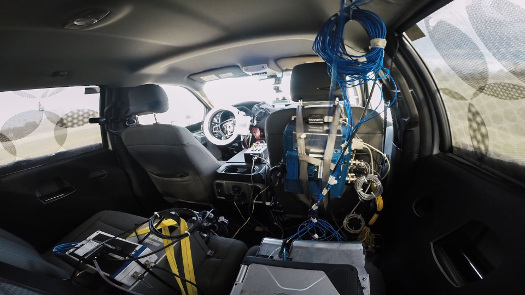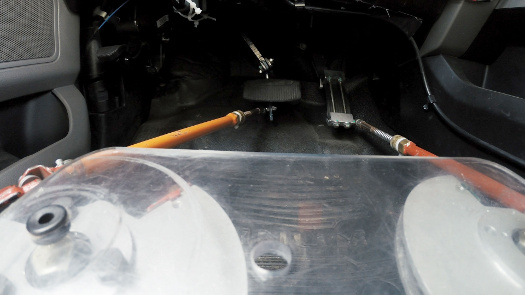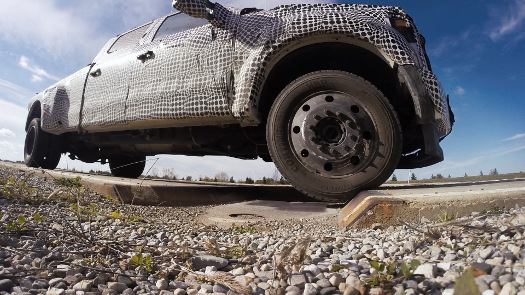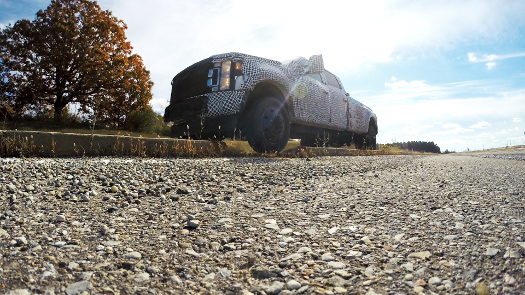 |
| December 08, 2015 | Volume 11 Issue 46 |
Designfax weekly eMagazine
Archives
Partners
Manufacturing Center
Product Spotlight
Modern Applications News
Metalworking Ideas For
Today's Job Shops
Tooling and Production
Strategies for large
metalworking plants
Wheels:
Ford licenses homegrown robotic testing technology to other automakers

Ford is licensing robotic test-driving technology to other automakers. The industry-first technology saves time and spares human drivers from such physically demanding tasks such as driving over curbs and through potholes -- over and over and over again -- in durability testing.
Ford engineers worked with Utah-based Autonomous Solutions Inc. (ASI) to further develop ASI's software and components that enable autonomous, robotic options of test vehicles.
Now, other automakers are set to benefit from Ford's patented technology.
"This robotic testing kit is available to purchase directly from ASI immediately," said Chris Danowski, director of technology commercialization and intellectual property licensing, Ford Global Technologies. "Several automotive OEMs have already placed orders to purchase systems for their own testing."
Robotic durability testing includes a control module installed in the test vehicle that controls vehicle steering. Ford-developed bell crank actuators control the throttle and brake pedals with a metal rod. The module is set to follow a preprogrammed course, and the vehicle's position is tracked by cameras in a central control room and via GPS accurate to +/- 1 in.

Should the vehicle stray from its course, engineers have the ability to stop it, course correct as necessary, and restart the test. Onboard sensors can command a full stop if a pedestrian or another vehicle strays into the test vehicle's path.
Robotically driven vehicles are expected to repeatedly perform tests on torturous surfaces with names like Silver Creek, Power Hop Hill, and Curb Your Enthusiasm. These tests can compress 10 years of daily driving abuse into courses just a few hundred yards long, with surfaces that include broken concrete, cobblestones, metal grates, rough gravel, mud pits and oversized speed bumps.

The innovative technology is helping to ensure the all-new 2017 F-Series Super Duty -- arguably Ford's toughest, smartest, most capable Super Duty ever -- is Built Ford Tough. Super Duty has undergone the equivalent of years of abuse and durability testing in a short amount of time to ensure it will hold up to a lifetime of the hard work its owners expect.

Ford has granted a patent license to ASI, providing the company rights to incorporate and use its bell crank actuators in the systems ASI sells to other automakers and suppliers to test cars, trucks, buses, and military vehicles.
In use since 2013, Ford's latest generation of robotic testing technology has seen significant improvements in reaction time and accuracy of the throttle and brake. Patented new design changes simplify installation, resulting in reduced installation time. Other changes enable fewer modifications to test vehicles and improved system performance with better component response. The system can quickly be deactivated, allowing a test engineer to gain control of the vehicle from the driver's seat.
Source: Ford Motor Co.
Published December 2015
Rate this article
View our terms of use and privacy policy
